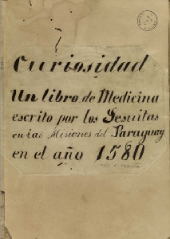September 3rd, 2021
The social sciences and humanities on family and kinship: contributions to the Family Health Strategy, published in the former edition of HCSM (Apr-Jun 2021) discusses contributions from the social and human sciences on the topic of family, considering it as central to public health policies.
The article’s author, Michely de Lima Ferreira Vargas, Research at Escola de Saúde Pública do Estado de Minas Gerais explores the social role and transformations of the family over time. The article also includes approaches related to family, gender, social class, and other contemporary issues.

Vargas, Michely de Lima Ferreira. The social sciences and humanities on family and kinship: contributions to the Family Health Strategy. História, Ciências, Saúde-Manguinhos [online]. 2021, v. 28, n. 2.
The article features a specific analysis related to Brazil and the patriarchal family Following health reform in the 80’s, Brazil has been expanding access to healthcare through the Unified Health System (SUS—Sistema Único de Saúde). At the heart of SUS, is the Family Health Strategy (FHS) (Estratégia Saúde da Família in Portuguese), which is the main primary healthcare model in the country. It emphasizes health care in community health facilities and at home to a defined local population.
See the full article:
Vargas, Michely de Lima Ferreira. Aportes das ciências sociais e humanas sobre família e parentesco: contribuições para a Estratégia Saúde da Família. História, Ciências, Saúde-Manguinhos [online]. 2021, v. 28, n. 2.
Read more about the Brazilian Unified System (SUS) in HCS-MAnguinhos:
30 years of SUS in our pages Thirty years ago, on September 19, 1990, Law 8,080 was enacted, creating the Unified Health System (SUS). To celebrate this remarkable moment, we highlight some articles and texts already published in our journal and blog about SUS, which is playing a decisive role in this pandemic context.
Health reform and the creation of the Sistema Único de Saúde: notes on contexts and authors, by Historians Carlos Henrique Assunção Paiva and Luiz Antonio Teixeira, from Casa de Oswaldo Cruz/FIOCRUZ, explains how within the context of the return to democracy, the new constitution enacted in 1988 transformed health into an individual right and initiated the process of creating a public, universal and decentralized health system, profoundly altering the organization of public health in Brazil.
The right to health – In 2016 we interviewed two experts on this subject, José Paranaguá and Carlos Henrique Paiva.
“Health is everyone’s right” – José Paranaguá is a reference in Brazil and Latin America in terms of community health, international health and bioethics. He is a doctor and has a PhD in health sciences. Among his many awards, he received the Oswaldo Cruz Medal of Merit in 2009 from the Brazilian Ministry of Health.
For an universal health system – Carlos Henrique Paiva is Assistant Professor of the Graduate Program in The History of Science and Health at the Casa deOswaldo Cruz. Carlos Henrique Paiva has published several articles and books about the history of public health in Brazil, health reform and the Brazilian National Health Service (SUS).
Political challenges facing the consolidation of the Sistema Único de Saúde: a historical approach, by Paulo Henrique de Almeida Rodrigues Professor, Instituto de Medicina Social/ Universidade do Estado do Rio de Janeiro investigates the circumstances in which Brazil’s sanitation reform was conceived and the Sistema Único de Saúde (SUS) was constructed.
Haitian immigrants in Brazilian healthcare system It examines how SUS responded to the demands placed by this unexpected contingent of new users.
See our full issue on SUS (v. 21, n.1, jan./mar. 2014):








